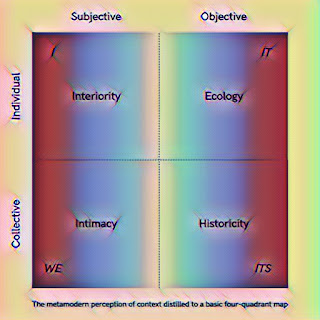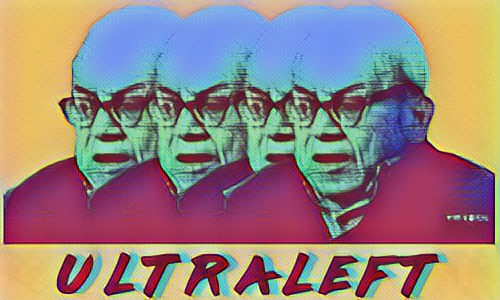Metamodernism
As we co-create the post-modern era, we will need to simultaneously adjust our practices to align with ecological principles and planetary boundaries while also putting our technological endeavors into hyperdrive in order to solve our many crises. This is the metamodern paradox.
Capitalism is yet another metanarrative in need of deconstruction. This metanarrative will not serve us to these ends described. In terms of micropolitics, a series of microrevolutions can cascade to form the basis of a counter hegemony to the totalitization of capitalist realism.
Modernization has been carried forward by enthusiastic overcoming of tradition and a confident subordination of nature by science and technology. Beck’s disorienting realization was that those very same energies, those same tools were now the source not only of our emancipation but also of our self-endangerment. To retreat would be to put the gains of modernization at risk. We could not deny the benefits of modernization. But nor could we deny its risks and side effects, intended and unintended.
Eco-modernization features new forms of environmental governance, sometimes referred to as micropolitics or cosmopolitanism, where the environmental movement, community groups, businesses, and other stakeholders increasingly take leadership roles in stimulating eco-transformation.
The shock generated by global risks continually gives rise to worldwide political publics. Cosmopolitanism is the defining feature of post-modern risk society, in which differences are dissolving but yet the individual is elevated. By cosmopolitan, I mean citizen of the cosmos.
Interconnectedness leads to reason for empathy. Dynamism leads to reason for optimism. Cosmopolitan empathy and optimism are key to utopian praxis.




Comments
Post a Comment